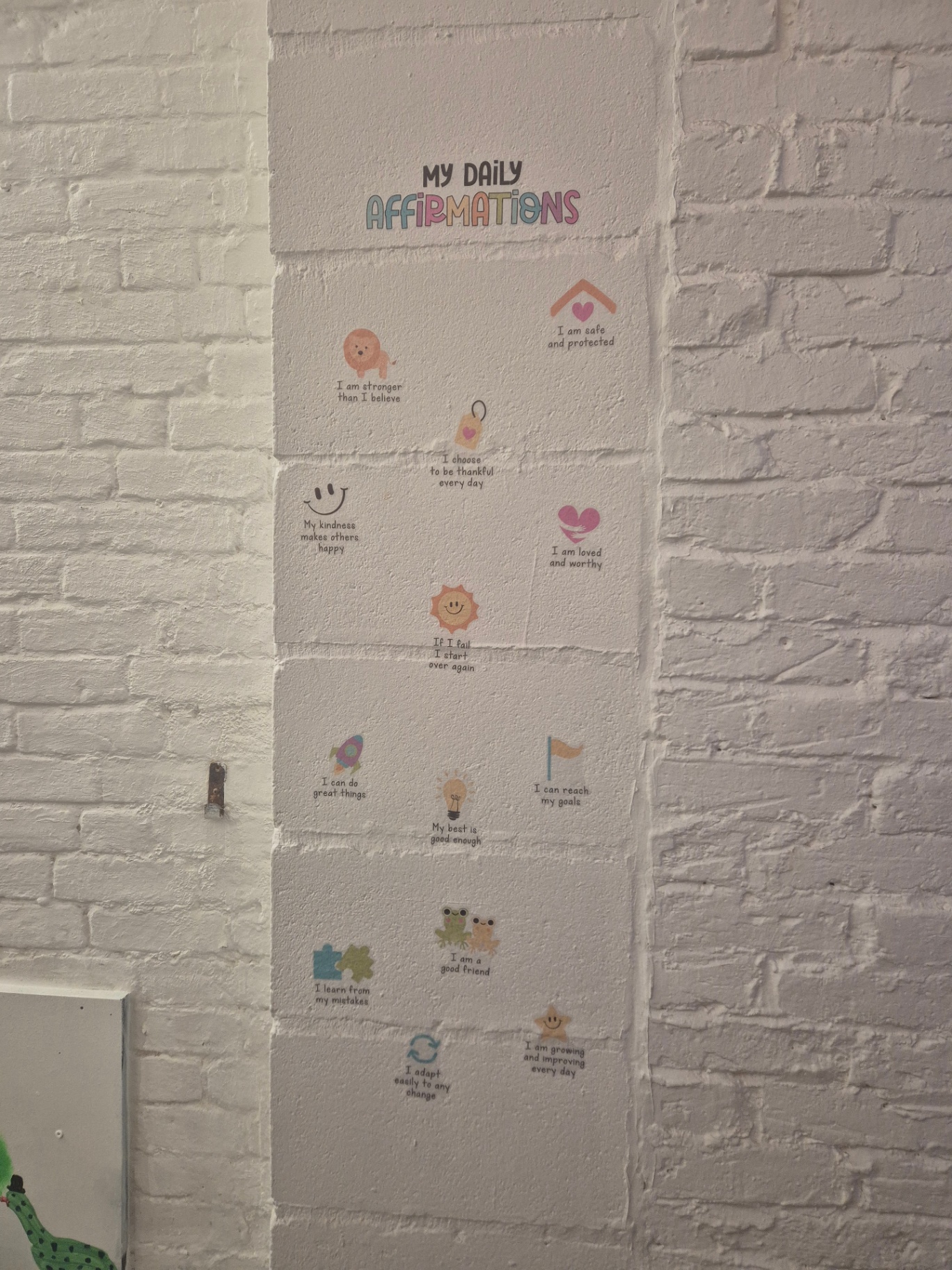Can Mentoring Really Help Anxious Students Return to Learning? The Truth About What Actually Works
- Fast Progress Tuition
- Oct 24, 2025
- 4 min read
When a child experiences Emotionally Based School Avoidance (EBSA), the question "Will mentoring actually help?" comes up frequently in SENCO meetings and LA discussions. EBSA is not a deliberate choice; the term 'refusal' is inaccurate because anxiety manifests as real physical symptoms and impacts emotional well-being. It's a fair question. With limited budgets and time, educational professionals need evidence-based approaches that deliver genuine results.
The short answer is yes: mentoring can be transformative for anxious students. But not all mentoring programmes work the same way, and understanding what actually makes the difference is crucial for getting real outcomes.
The Research Evidence Is Clear
Multiple studies demonstrate that structured mentoring reduces anxiety and improves educational engagement. A peer-based mentoring programme for college students showed that those meeting with trained peer mentors once weekly experienced significantly greater reductions in depression symptoms compared to control groups. In nursing education, mentorship programmes implemented before high-stakes exams led to measurable reductions in test anxiety, with mentored students consistently outperforming their non-mentored peers.
Canadian research documented that mentored youth reported significantly fewer behavioural problems and fewer symptoms of depression and social anxiety than their non-mentored counterparts. Near-peer mentoring in healthcare education increased resilience among participating students, with improvements maintained throughout entire academic semesters.
The evidence consistently points to mentoring as an effective intervention: when implemented correctly.

Creating calm, supportive environments enhances mentoring relationships
Understanding How Mentoring Works for Anxious Students
Mentoring addresses anxiety at its core by providing what anxious students often lack most: a stable, predictable relationship with someone who understands their experience. Unlike traditional therapeutic interventions, mentoring works through relationship-building rather than clinical diagnosis.
The mechanism operates on several levels. First, mentors provide emotional scaffolding: helping students develop coping strategies and build self-confidence through consistent, non-judgemental support. Second, they offer practical guidance for managing academic expectations and developing problem-solving skills. Third, they create a sense of agency and control, directly counteracting the helplessness that often accompanies severe anxiety.
For secondary students specifically, mentors help bridge the gap between overwhelming academic demands and individual capacity. They normalise the experience of difficulty while building resilience through structured support.
What Makes Mentoring Programmes Actually Work
Consistency and Structure Effective programmes involve regular, scheduled contact rather than ad-hoc support. Weekly sessions create predictability that anxious students need. One-off interventions rarely produce lasting change.
Peer and Near-Peer Models Research consistently shows peer mentoring: where students mentor other students: creates relatability that resonates with anxious learners. Near-peer mentoring, involving slightly more advanced students, combines relatability with credible experience.
Multi-Dimensional Support Programs addressing academic performance, emotional wellbeing, and personal development simultaneously show stronger results than single-issue interventions. Effective mentors understand that academic anxiety rarely exists in isolation.
Safe Physical Environments The space where mentoring occurs significantly impacts effectiveness. Environments that feel safe, welcoming, and distinct from traditional classroom settings help anxious students engage more readily.

Purpose-designed spaces support effective mentoring relationships
FPT's In-House Mentor Team Approach
At Fast Progress Tuition, our in-house Mentor Team works specifically with students experiencing EBSA and SEND-related anxiety. The program integrates several evidence-based elements that research identifies as most effective.
Structured Weekly Sessions Each student receives consistent weekly mentoring sessions alongside their academic provision. This regularity creates the predictability that anxious students require for building trust and engagement.
Multi-Modal Support Our mentors address academic confidence, social anxiety, and practical coping strategies within each relationship. Sessions might focus on managing classroom anxiety one week, developing study skills the next, and building social confidence throughout.
Environmental Design Our centres feature purpose-designed spaces that feel distinctly different from traditional school environments. Calm, welcoming spaces with natural light, comfortable seating, and sensory considerations help students feel safe enough to engage authentically.
Integration with Academic Provision Mentoring doesn't exist separately from learning. Our mentors work closely with teaching staff to ensure emotional support reinforces rather than competes with academic progress.

Environmental factors significantly impact mentoring effectiveness
Real Outcomes from Practice
Students in our mentoring programme show measurable improvements across multiple areas. Academic engagement typically increases within 4-6 weeks of starting structured mentoring relationships. School anxiety levels decrease as students develop practical coping strategies and build confidence through consistent support.
Many students who initially experienced EBSA that prevented attendance at any educational provision begin attending regularly within the first term. Those who do return to mainstream settings report feeling more equipped to manage anxiety triggers and seek appropriate support when needed.
Post-16 SEND students particularly benefit from mentoring relationships that help them navigate the transition to more independent learning while maintaining emotional support structures.
The integration of mentoring with academic provision creates a comprehensive support model that addresses both the symptoms and underlying causes of education-related anxiety.
Implementation Considerations for Schools and LAs
Training Requirements Effective mentoring requires specific training in anxiety recognition, de-escalation techniques, and relationship-building skills. Generic mentoring training often proves insufficient for students with significant anxiety presentations.
Time Investment Meaningful mentoring relationships require time to develop. Programmes expecting immediate results often fail to achieve lasting change. Most effective interventions show results after 6-8 weeks of consistent engagement.
Integration with Existing Support Mentoring works best when integrated with rather than separate from other interventions. EHCP targets, therapeutic support, and family involvement should align with mentoring objectives.
Environmental Factors The physical space where mentoring occurs significantly impacts effectiveness. Traditional classroom settings often trigger anxiety responses that undermine relationship-building efforts.

Environmental messages reinforce mentoring relationships
What Actually Works in Practice
Evidence and experience consistently point to several key factors that determine mentoring success with anxious students:
Relationship Quality Over Technique The strength of the mentor-student relationship matters more than specific interventions or approaches. Students need to feel genuinely understood and supported before they can engage with practical strategies.
Individualised Approaches What works for one anxious student may not work for another. Effective programmes adapt to individual needs rather than applying standardised interventions.
Long-Term Perspective Sustainable change takes time. Programs focused on quick fixes rarely produce lasting improvements in anxiety management or educational engagement.
Holistic Support Addressing anxiety without considering academic, social, and family factors limits effectiveness. Comprehensive approaches that consider the whole child consistently show better outcomes.
The evidence clearly demonstrates that mentoring can help anxious students return to learning: when programmes are structured appropriately, delivered consistently, and integrated with comprehensive support approaches. For educational professionals seeking effective interventions for EBSA, quality mentoring programmes represent a proven, evidence-based option that delivers genuine results.
The key lies not in whether mentoring works, but in ensuring that mentoring programmes incorporate the elements that research and practice identify as most effective for supporting anxious students' return to successful learning.







